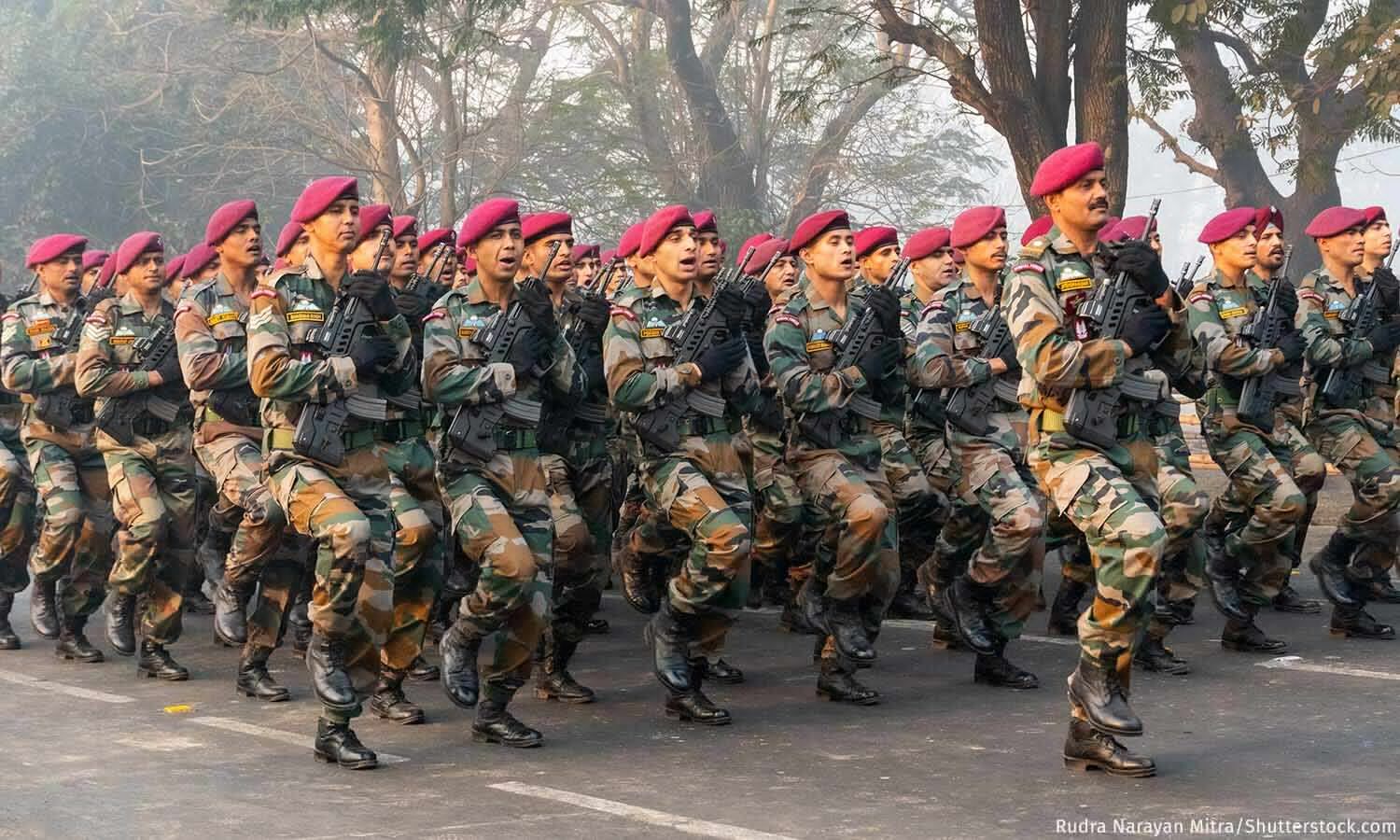Few Vacancies, Delayed Appointments: Why Ex-servicemen Fail To Find Jobs
Though ex-servicemen from the armed forces say they have skills such as discipline and punctuality, they lack other skills that help adjust to civilian life and jobs.

Mumbai: When Captain Jagveer Malik was 52, he applied for the post of junior lecturer in 2011, just before he retired from the army. First he waited for two years for Haryana's education department to conduct an exam for the job. Then, he waited another two years for an interview. When he did not get a letter for the post which was reserved for an ex-serviceman, even after six months of the interview, he met the director of the education department and asked him to intervene. When he finally received an appointment letter, six years after he first applied, there were three months to go before he turned 58, the age of retirement for a teacher in Haryana.
"Tab main kya service karta? (What work would I have done in that short a time)," the now 64-year-old told IndiaSpend, saying he turned the job down.
Malik, who spent 32 years in the army, is among the approximately 60,000 army personnel who retire every year. The earliest retirement age is 42 (for group I semi-skilled sepoys, or 17 years of service, whichever is earlier) and the oldest of them retire at 54 (for Junior Commissioned Officers or JCOs, or 32 years of service), which means that they have anything between five and 25 years of active employment ahead of them. These ex-servicemen are vying for the 10% quota in Group C and Group D government jobs, which are clerical and routine tasks. They do receive a pension after they retire from the armed forces, but this is not enough to sustain them and their families, they told IndiaSpend.
Under the new recruitment programme for the armed forces, Agnipath, which was announced on June 14, 2022, new recruits will be hired for a four-year term. Of these, 25% will be considered for a permanent role as JCOs for 15 years, while the others will go back to civilian life, with savings of Rs 11.7 lakh but no pension or gratuity. Some posts in the Central Armed Police Forces and the Assam Rifles will also be open to Agniveers, the name for soldiers recruited through Agnipath.
But veterans say that the skills soldiers pick up during duty are not sufficient to get them jobs after retirement, and data show that despite reservations for them in central public sector banks and Public Sector Undertakings (PSUs), etc., veterans fail to find jobs after retirement. At the same time, the savings they retire with may give them a chance to get a graduate degree or re-skill for particular jobs and give them an edge over other job seekers who do not have the army experience, experts say.
Bureaucratic delays means loss of job opportunities
Captain Malik's is not the only case of a delay in public sector appointments.
After retiring from the army as a Subedar Major, Chandra Bhan (57) applied for the position of a clerk in the Haryana government in 2014. He completed all the rounds of the recruitment process, but the appointment was cancelled after the Bhupender Singh Hooda-led Congress government was replaced by the Manohar Lal Khattar-led Bharatiya Janata Party government. By the time the vacancy was announced a second time, he was 50 years old, and past the eligible age for the job.
Similarly, Raj Kumar (40) is still waiting for the recruitment process of a job as a police constable in the Haryana Police for which he had applied in 2020. Sometimes the exam papers are leaked, and those recruitments don't happen. At other times, when the exam paper is too hard, that recruitment might get cancelled, he said.
With just five more years to go before he becomes ineligible for these jobs, Kumar is impatient.
Skills not transferable from the army to civilian life
The minimum educational qualification required for a junior commissioned officer is passing grade X, similar to that required for an Agniveer.
Raj Kumar is certain he is more disciplined and punctual than a civilian candidate after spending 17 years in the army. However, he needed help with the "pattern" and syllabus of the entrance exam for the jobs for which he was applying.
"If a person gets a job, he will do it with all responsibility, and do it well. But, the problem is that [in the army] we stay away from society, and when we return, we find it difficult to handle a lot of things [related to civilian life]," he told IndiaSpend.
"There is a skill mismatch, and this will create a cluster of people with very specific skills and there is no clarity if there is any demand for these skills," explains Rosa Abraham, an economist at the Centre for Sustainable Employment at Azim Premji University. "This intervention will give the soldiers some advantage over their peers but there are other ways of achieving the same advantage."
On the job, they may learn how to repair a radio, vehicle or tank or weapons maintenance, etc., Sushant Singh, senior fellow at the Centre for Policy Research, told IndiaSpend. "But these skills are hardly transferable to civilian life."
"The men acquire some soft skills, like discipline etc., which is what the government is trying to sell. However, this could be balanced by the time spent away from education, so they have difficulty in finding a civilian job. Having said that, most people who join the ranks of soldiers possess low skills, so they would have had limited prospects anyway," added Singh of CPR.
With slow recruitment in the public sector, many ex-servicemen opt for jobs as security guards in the private sector. With no other option in sight, Bhan, who was a Subedar Major in the army, says he too applied for a job as a security guard. But, he said, the Rs 8,000 per month salary was too little, and did not include compensation for working beyond hours. "Shoshan ho raha hai sainiko ka, aur sarkar ko pata hai," he said. "The soldiers are being exploited, and the government knows that."
Agniveers might have some advantages in private sector jobs
The youth (age 15-29) unemployment rate in the country was at 12.9% in 2020-21, according to the Periodic Labour Force Survey.
The savings of Rs 11.7 lakh might give retired Agniveers an edge. "These men will have some advantage over those who do not have the army experience," said Mahesh Vyas, managing director and CEO of the Centre for Monitoring Indian Economy. "When they retire and join the job markets outside the armed forces they will be competing with candidates who have at most passed their 10th or 12th standards, not with graduates. Their advantage will be in better physical fitness and ability to do physical work. There are many jobs that would give a premium to such fitness," he added.
Vyas also said that 22 or 23 years is not too late to go back to college, so they can use the money to get a degree. "Again, when they enter the workforce, they will have some advantage over their counterparts who do not have the army experience."
But this will still require that the government take steps to bring more jobs to the economy. "The money is welcome. But rather than creating temporary employment in the public sector, the focus should be on filling existing vacancies in public sector posts, reviving a faltering post pandemic informal sector, and encouraging private sector employment," said Abraham. "The money is only a temporary salve for a deeper fracture."
In the wake of protests against Agnipath by aspiring soldiers, industrialists took to Twitter to announce that they were willing to hire ex-servicemen in their organisations. IndiaSpend wrote to RPG Group, Biocon and Mahindra and Mahindra, whose CEOs tweeted to announce their willingness to hire retiring Agniveers, to ask about the number of ex-servicemen they have hired until now. This story will be updated once they respond.
Too many ex-servicemen, too few public sector seats
Veterans complain that the number of jobs reserved for them are too few.
But despite the scarcity, most of the jobs that are reserved for ex-servicemen are not given to them, according to data. According to the rules of reservation, there should be 413,688 positions available for ex-servicemen in Groups A, B, C and D jobs.
However, less than a quarter (80,135 of 413,688) of these jobs in banks, Central PSUs and Central Armed Police Forces are taken by ex-servicemen, according to data from the Directorate of Resettlement. The Central Armed Police Forces, which announced a 10% reservation for retiring Agniveers, has given only 0.47% of the 10% in Group C to ex-servicemen as of June 2021. The Central PSUs have staffed 1.15% of the Group C vacancies and 0.3% of the Group D vacancies with ex-servicemen, based on data from 98 of 170 PSUs.
These data show that absorbing the first batch of 34,500 retired Agniveers in 2026 will require additional vacancies. While Home Minister Amit Shah announced that they will be given preference in the recruitment for Assam Rifles and Central Armed Police Forces, it is not clear if they will be eligible for the same quota as the ex-servicemen.
IndiaSpend reached out to the Ministry of Home Affairs for a clarification on the eligibility of Agniveers to apply for these jobs, the savings they will have at the end of their service, the reasons for currently vacant ex-servicemen posts and whether Agniveers will be more likely to find jobs as compared to the current scenario for retired servicemen. This story will be updated when they respond.
Bhan, who tried working as a security guard for Rs 8,000, says that little will change in public jobs. "They haven't given any jobs to those who retired earlier, so how are they going to give jobs to these new ones?"
We welcome feedback. Please write to respond@indiaspend.org. We reserve the right to edit responses for language and grammar.



